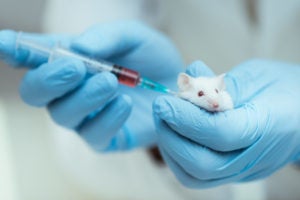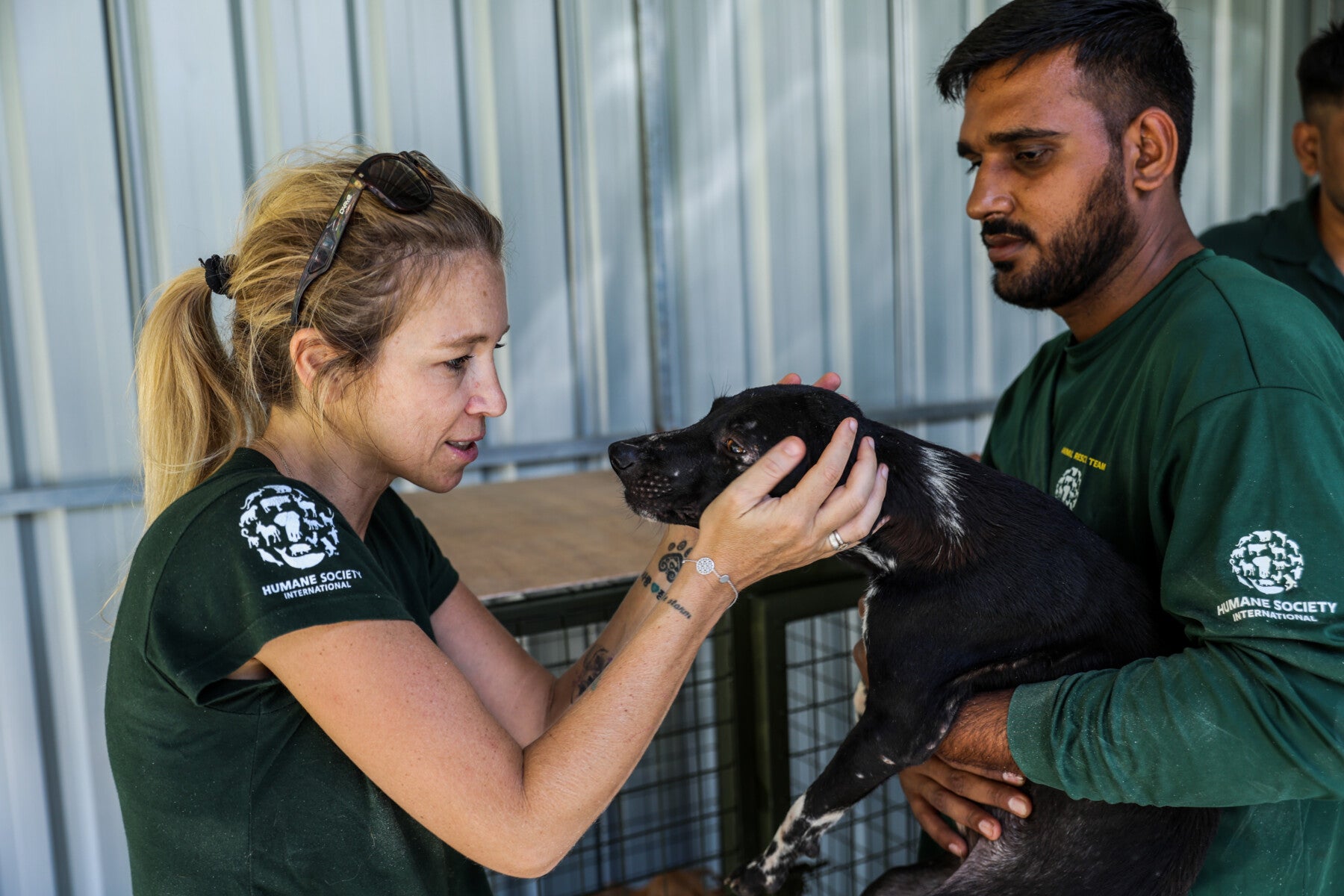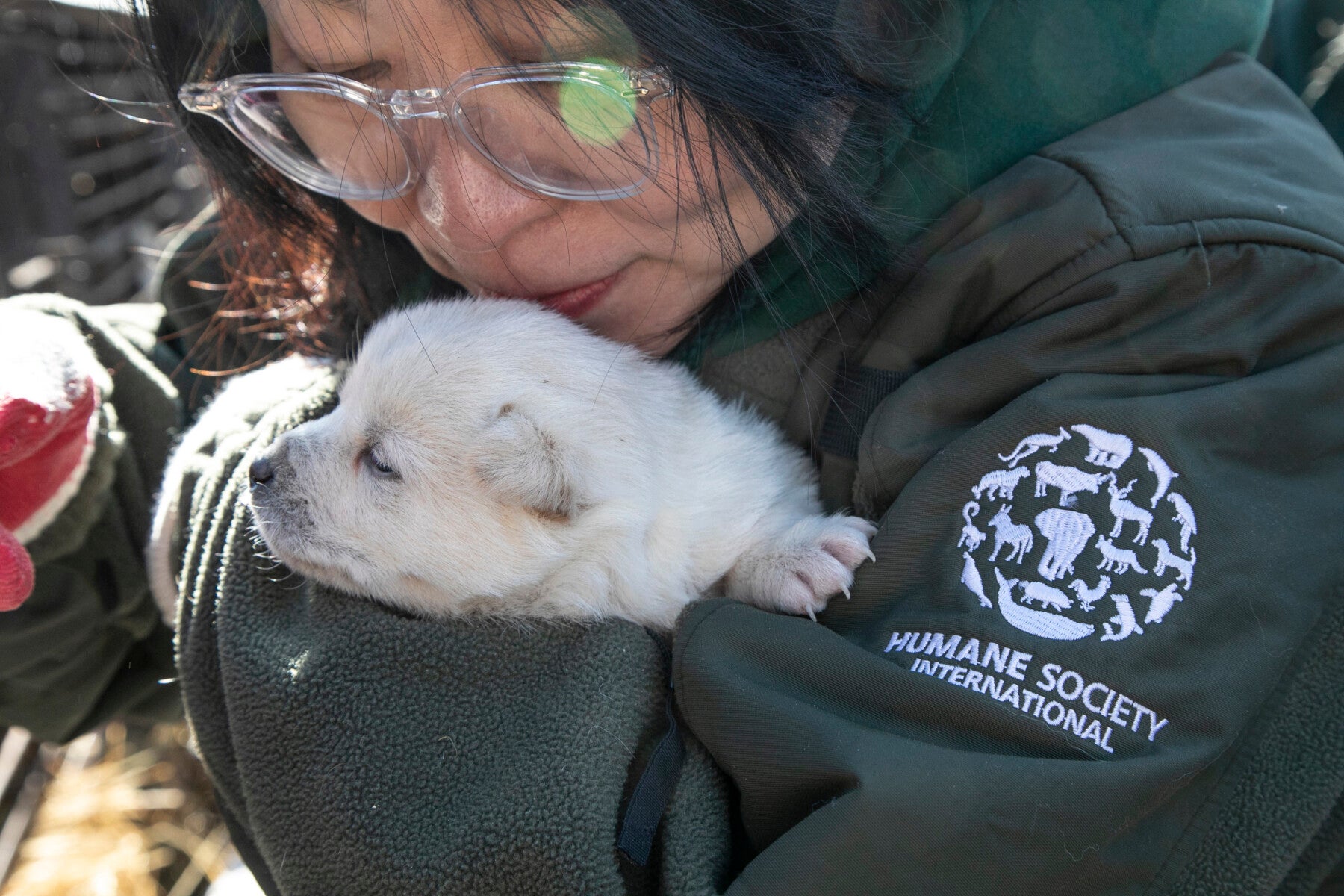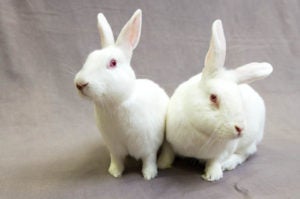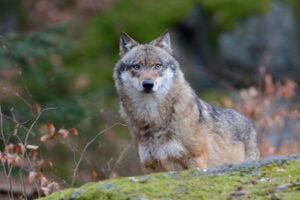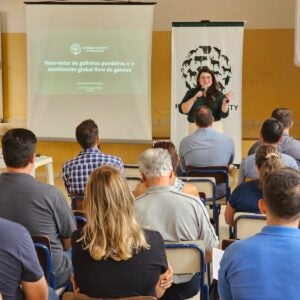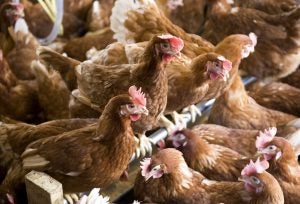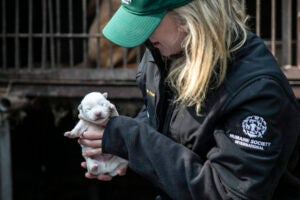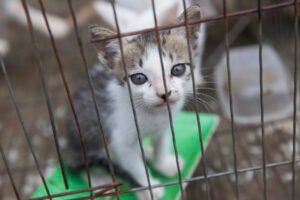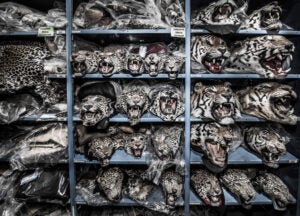
BRUSSELS—In a momentous triumph for wildlife conservation and animal welfare, Belgium’s Parliament sealed a landmark decision today by voting unanimously in favour of the Minister of Climate, the Environment, Sustainable Development and Green Deal, Zakia Khattabi’s bill prohibiting the import of hunting trophies from endangered species into the country. This historic move, following nearly two years since the Parliament’s initial call for such a ban, will protect revered species such as lions and rhinos.
The vote, endorsed in the Belgian Chamber of Representatives unanimously, echoes the 91% of Belgians standing against trophy hunting and the 88% supporting a ban on the importation of any hunting trophy, according to a 2020 Ipsos survey commissioned by Humane Society International/Europe.
Before the ban, Belgium imported trophies of species vulnerable to extinction such as hippopotamus, cheetahs and polar bears. The new law will stop the import of hunting trophies from many species currently at risk of extinction due to trade or that could be threatened unless trade is limited. All species listed in Annex A of the European Regulation 338/97 on the protection of species of wild fauna and flora, such as jaguars, cheetahs, leopards, some brown bears, Cape mountain zebra and chimpanzees, and African elephants will be protected by the new bill, along with certain species in Annex B of the same regulation, including African lions, Southern white rhinos, hippos and argali sheep, also listed in Annex XIII to Regulation (EC) No 865/2006 regulating the trade of protected wild flora and fauna. The new law surpasses the 2022 Parliament resolution, by extending protection to more species from Annex B than the initial six initially covered by the resolution.
Minister of Climate, the Environment, Sustainable Development and Green Deal, Zakia Khattabi says: “With the approval of my legislative project this Thursday in plenary, the Parliament is providing a legal basis to the resolution it unanimously adopted on 24 March 2022. It was urgent and necessary to protect these threatened and endangered species!”
Member of Parliament Kris Verduyckt (Vooruit, Flemish Socialists), who initiated the legislative proposal to ban hunting trophy imports, said: “Our country is finally banning the import of hunting trophies of endangered animals. The protection of these species is incompatible with trophy hunting imports. I am delighted that my legislative proposal is now enshrined in our legislation and I hope that it will serve as a source of inspiration for many other countries.”
Having championed this cause for years and collaborated closely with Belgian MPs to garner parliamentary support, Humane Society International/Europe applauds the adoption of this crucial legislation, which brings to a successful outcome a complicated legislative process. The animal protection charity has worked with MPs to secure an import ban for over two years, resulting at first in a unanimously supported parliamentary resolution in 2022 that became a legislative proposal approved by the Federal government’s Council of Ministers in July 2023.
“The Belgian Parliament made history today for animals and is illustrating its continued and principled stand against the senseless killing of endangered wildlife,” said Ruud Tombrock, executive director of HSI/Europe. “With this decision, Belgium positions itself as a leader in protecting biodiversity and endangered species. We believe other European countries are also ready to follow suit and take a strong stance against trophy hunting by banning imports of such souvenirs. The time is now for an EU-wide ban on the import of hunting trophies from endangered and protected species, reflecting the views of citizens across Member States in the European Union who share a commitment to being cautious and protective of animals and biodiversity, as well as preventing the fragmentation of the EU Single Market.”
The ban in Belgium sends a positive signal in support of the adoption of a similar ban in neighbouring France, where a cross-party Assembly bill proposal to ban the import of hunting trophies of protected species is currently under parliamentary session. That ban was proposed by Ecologist MP Sandra Regol with the support of Renaissance MP Corinne Vignon, chair of the Assembly’s Study Group on the Condition and Welfare of Animals.
Before its implementation, the adopted Belgian legislation needs to receive royal sanction and promulgation. The text will then be published in the ‘Moniteur Belge,’ coming into force on the day specified within the text, or if unspecified, 10 days after publication.
Download pictures of hunting trophies and campaign materials against trophy hunting here.
Background:
- Trophy hunting of endangered species poses a severe threat to conservation and the world’s natural heritage. Trophy hunters prefer to kill the largest, most physically impressive animals, whose loss can cause cascade declines in populations. Many of the targeted species, such as African elephants, rhinoceros and leopards, are facing the risk of extinction and play crucial roles in maintaining healthy ecosystems and biodiversity.
- According to an HSI/EU report, the EU is the second largest importer of hunting trophies after the United States, with an average of 3.000 trophies imported in the period between 2014 and 2018. The EU was also the largest importer of cheetah trophies with 297 cheetah trophies imported into the EU between 2014 and 2018. The top five species imported into the EU as trophies: Hartmann’s mountain zebra (3.119), Chacma baboon (1.751), American black bear (1.415), brown bear (1.056) and the African elephant (952),
- Belgium is the 13th largest hunting trophy importer of internationally protected species in Europe.
- In May 2016, the Netherlands instituted a ban on the import of hunting trophies for more than 200 species listed under Annex A of European Regulation 338/97 on the protection of species of wild fauna and flora by regulating trade therein and of species in danger of extinction. The import ban also applies to the following Annex B species: white rhinoceros, hippopotamus, mouflon (wild sheep from the Caucasus), lion and polar bear. A total of 200 animal species are affected by the import licenses ban.
- France implemented a ban on the import of lion-hunting trophies in 2015. In 2023, a Bill proposal for registration, aimed at “stopping the issuance of import permits for hunting trophies of certain endangered species” was tabled.
- The import of hunting trophies into Finland was restricted in June 2023. The new Nature Conservation Act includes a provision that prohibits the import of individual animals or their parts from the most endangered species worldwide which are threatened by international trade as trophies from countries outside the EU.
- In Germany, the Minister of the Environment, Steffi Lemke (The Greens), announced that she intends to restrict the import of hunting trophies from protected animal species. Germany terminated the Country’s membership in the International Council for Game and Wildlife Conservation, a pro-trophy hunting lobby, in 2022.
- In Italy in 2022, a bill aimed at banning the import, export and re-export to and from Italy of hunting trophies obtained from animals that are protected by CITES (the Convention on International Trade in Endangered Species) was presented. After the fall of the government and the elections in 2022, the same bill was tabled again in Parliament.
ENDS
Media contact: Cassie Bodin-Duval, international media relations coordinator at Humane Society International/Europe, cbodinduval@hsi.org; +32 469 149 469

